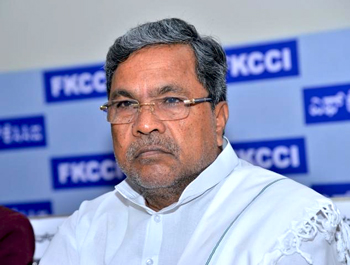Mangaluru, Mar 21: Southern Railway has cancelled some more trains in view of poor patronage due to restrictions in place to prevent the spread of COVID-19.
Train No.16565 Yesvantpur-Mangaluru Central Weekly Express has been cancelled on March 22 and March 29.
Train No.16566 Mangaluru Central-Yesvantpur Weekly Express will not run on March 23 and March 30.
Train No.10215 Madgaon-Ernakulam Weekly Superfast Express will not be operated on March 22 and March 29.
Train No. 10216 Ernakulam-Madgaon Weekly Superfast Express will not run on March 23 and March 30.
Train No.16355 Kochuveli-Mangaluru Junction Antyodaya Express, scheduled to leave Kochuveli on March 21, 26 and on March 28 stands cancelled.
Train No.16356 Mangaluru Junction-Kochuveli Antyodaya Express, scheduled to leave Mangaluru Junction on March 22, 27 and March 29 will not be operated, a Southern Railway release said.
Hubballi–KSR Bengaluru–Hubballi Janashatabdi (Daily) Express (12079/12080), Mysuru–Yelahanka–Mysuru Malgudi (Daily Express)
(16023/16024), Yeshwantpur–Pandharpur–Yeshwantpur (Weekly) Express (16541/16542), Mysuru–KSR Bengaluru–Mysuru Rajyarani Express
(16557/16558), Shivamogga–Yeshwantpur –Shivamogga Express Special (06539/06540), Mysuru–Renigunta–Mysuru Weekly Express
(11065/11066), Mysuru–Sainagar Shirdi–Mysuru Weekly Express (16217/16218), Yeshwantpur–Mangaluru–Yeshwantpur Weekly Express (16565/16566), and Belagavi–Mysuru Vishwamanava (Daily) Express (17326).
Mysuru–Belagavi Vishwamanava (Daily) Express (17325) has been cancelled till April 1.
The services of Train No.16023/16024 Mysuru-Yelahanka-Mysuru Malgudi Express has been cancelled from March 20 to March 31.
Similarly, Train No.16557/16558 Mysuru-KSR Bengaluru-Mysuru Rajya Rani Express will not ply from March 20 to March 31, according to a railway release.
Train No. 17325 Belagavi-Mysuru Vishwamanava Express will not operate from March 21 to April 1 and the corresponding service of Train No.17326 from Mysuru to Belagavi will remain cancelled from March 20 to March 31.
The authorities have also cancelled the service of Train No.11065 Mysuru to Renigunta weekly express which was to operate on March 20 and March 27 and the corresponding service from Renigunta to Mysuru on March 21 and March 28.
Likewise, Train No.16217 Mysuru to Sainagar Shirdi weekly express will not operate on March 23 and March 30 and the journey in the return direction of Train No.16218 Sainagar Shirdi to Mysuru weekly express on March 24 and March 31 stands cancelled.
The railway authorities have cancelled the Hubballi-KSR Bengaluru-Hubballi Janshatabdi superfast express from March 20 to March 31 and the services of Train No.06539/06540 Yasvantpur- Shivamogga Town-Yasvantpur express for March 20, 24, 25, 26, 27 and March 31 stands cancelled.
The other trains cancelled for a limited period include Train No.16541 Yasvantpur to Pandharpur weekly express for its journey commencing on March 19 and 26 and the return journey on March 20 and 27.







Comments
Malya is responsible for it....he took the money to Britain....
No 1 kalve
Add new comment